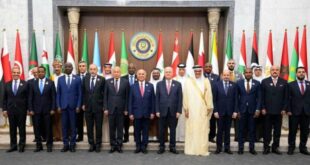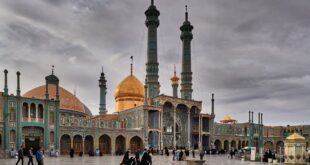BEIRUT — Israel’s assault on Lebanon threatens to weaken Arab moderates throughout the region, bolstering the image of Islamic fighters at a time when anger among the Arab public is running high over the “war on terror†and America’s role in Iraq.
A drawn-out conflict could redefine politics throughout the Mideast.
Israel launched the punishing air campaign after Hizbollah fighters seized two Israeli soldiers and brought them back to Lebanon.
But the military campaign is also the result of the deadlock in Arab-Israeli peacemaking after decades of false starts, Iran’s growing influence and the fallout from the rise of Iraq’s Shiite majority after generations of Sunni rule in that oil-rich nation.
For the Lebanese, it means a return to the dark days of its 1975-90 civil war, when neighbouring countries used their Lebanese proxies to settle their differences with violence — on Lebanon’s soil.
The fighting showcases the fragility of the Lebanese state. The Beirut government acknowledged its inability to control Hizbollah, and the national army has so far stood by watching Israeli warplanes and gunboats attack with impunity.
Hizbollah’s leader, Sheikh Hassan Nasrallah, has talked for years about kidnapping Israeli soldiers to swap them for Arabs held in Israeli jails. But some analysts believe the timing indicates Nasrallah has more in mind.
“Hizbollah wants to be recognised as a major Middle East player,” said Mustapha Al Ani, an Iraqi analyst based in Dubai. “Picking up a fight is a good way of doing this.” Hardliners on the other side may also see advantages in prolonging the conflict, even at the risk of Israeli casualties from rocket attacks against its northern cities.
“Israel has an opportunity here to make some new rules of the game in order to provide security to the Israeli people,” said retired Maj. Gen. Uzi Dayan, former chairman of Israel’s National Security Council.
To stop now, he said, would benefit Hizbollah and encourage it to fire more missiles into Israel.
But the risks of carrying on the fight are less for Hizbollah than for the Israelis, who must weigh the cost of the conflict on their own citizens and the country’s international image.
Hizbollah’s capturing of the two soldiers may have brought death and destruction to the Lebanese. But it also encourages Arab radicals opposed to peace with Israel at any price. In a region where emotion can trump logic, Hizbollah’s boldness only serves to discredit moderate, pro-US Arab governments.
Already, tens of thousands have demonstrated in several Arab capitals to protest the Israeli incursion and the lack of action by Arab governments to stop it.
All this carries risks for America’s position in the Mideast, which has already suffered a huge setback because of the widespread perception that the “war on terror†is a war against Islam. America’s longtime support of Israel guarantees that Washington will be blamed for whatever the Israelis do.
The secretary general of the Arab League fumed that Israel had been given “a green light to do as it pleases” in Lebanon.
“The superpowers have handed the [Mideast] peace file over to Israel and what we see now is the result,” Amr Musa said.
His comments suggested that a new and potentially dangerous page in the turbulent history of the Middle East was coming into focus — and it is not one where the moderates prevail.
 Eurasia Press & News
Eurasia Press & News



